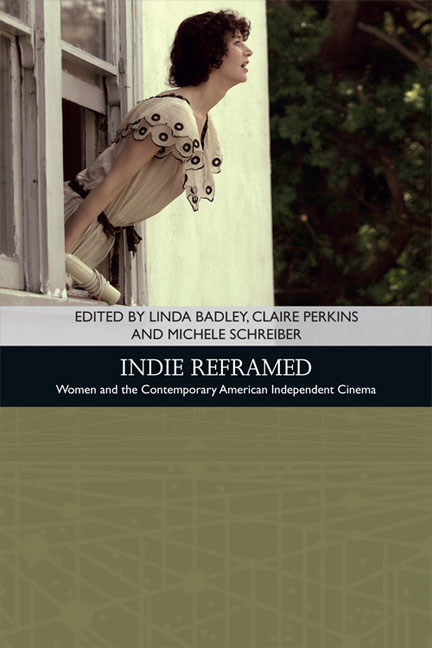7 - Down to the Bone: Neo-neorealism and Genre in Contemporary Women’s Indies
Published online by Cambridge University Press: 10 November 2020
Summary
Social realism, whether in documentaries or features or experimental blends of both, was once a distinguished, if not the definitive, tradition in American women's independent cinema that included pioneers such as Barbara Kopple, Shirley Clarke, Julia Reichert, Su Friedrich and Allison Anders. In the Miramax- Sundance era, it struggled to survive through non-profit producer-distributors such as Women Make Movies and women's and gender studies festivals, conferences, and exhibitions. But with the attenuation of the Indiewood sector (detailed by James Lyons and others in this volume), the last decade or so has witnessed a resurgence in both women's independent documentary (by Liz Garbus, Laura Poitras, Ava DuVernay, Lauren Greenfield, and Heidi Ewing) and documentary-style social realist features by and about, and ostensibly for, women that have found not only critical acclaim and mainstream awards but modest commercial success. I am interested in the latter trend, one including (among several others) Karen Moncrieff's The Dead Girl (2006), Courtney Hunt's Frozen River (2008), Debra Granik's Down to the Bone (2004) and Winter's Bone (2010), Megan Griffiths’ The Off Hours (2011) and Eden (2012), Ava DuVernay's Middle of Nowhere (2012), and Kelly Reichardt's films through Meek's Cutoff (2011).
These films feature middle and lower-class female protagonists who find a limited agency within a meticulously rendered web of intersectional circumstances in which they are embedded. Thus they eschew the hyper-stylisation and choreographed action sequences of what Stella Bruzzi deems contemporary Hollywood ‘men's cinema’ in the sense that the latter is ‘grounded in the relationship between masculinity – its ideology as well as its representation – and aesthetics’ (2014: 6). In contrast to ‘smart’ and mumblecore indies about (and largely by) solipsistic white male urban sophisticates (which constitute another kind of ‘men's cinema’) they are unironic and deliberately ‘uncool’. This choice is political as well as aesthetic and, for many female/feminist practitioners, it represents a significant, low-budget and relatively sustainable, alternative in recent years.
In juxtaposition with ‘men's cinema’ in all these senses, this group of films might seem to support the widespread assumption, noted by Geoff King in the previous chapter, that women's films tend to be representational, low key, and concerned with the day-to-day routines of ordinary life.
- Type
- Chapter
- Information
- Indie ReframedWomen's Filmmaking and Contemporary American Independent Cinema, pp. 121 - 137Publisher: Edinburgh University PressPrint publication year: 2017



